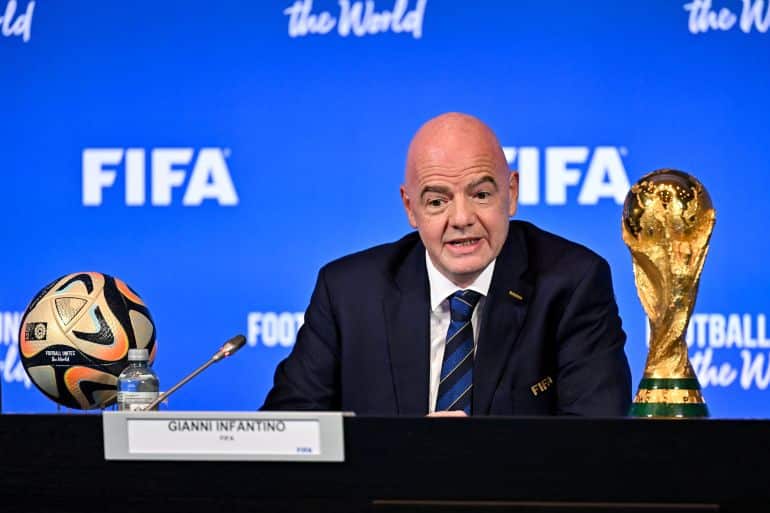FIFA World Cup 2026 impact on North America
The FIFA World Cup 2026 is set to be a landmark event, not just for football fans worldwide, but especially for North America. For the first time in history, the tournament will be jointly hosted by three nations—the United States, Canada, and Mexico—marking a significant moment for the sport in the region. With an expanded format featuring 48 teams and matches spread across 16 host cities, the World Cup is poised to leave a lasting legacy on football in North America. Here’s how the tournament will impact the sport in the region:
1. Increased Popularity and Fan Engagement
Football (or soccer, as it’s known in the U.S. and Canada) has been steadily growing in popularity across North America, but the World Cup will take it to new heights. The tournament will expose millions of new fans to the sport, thanks to its global appeal and the excitement of hosting such a prestigious event. Expect packed stadiums, record-breaking TV viewership, and a surge in grassroots participation as young fans are inspired by the world’s best players.

2. Infrastructure Development
Hosting the World Cup requires world-class facilities, and North America is rising to the challenge. Stadiums like SoFi Stadium in Los Angeles, MetLife Stadium in New York, and the Azteca Stadium in Mexico City are being upgraded to meet FIFA standards. Beyond stadiums, investments in transportation, accommodation, and training facilities will leave a lasting legacy for local communities and future sporting events.
3. Boost to Local Leagues
The World Cup will shine a spotlight on North America’s domestic leagues, including Major League Soccer (MLS) in the U.S. and Canada, and Liga MX in Mexico. As international fans and media descend on the region, these leagues will gain unprecedented exposure. This could lead to increased attendance, higher TV ratings, and greater interest from global sponsors. Additionally, the tournament could attract more international stars to play in North American leagues, further raising their profile.
4. Economic Impact
The World Cup is a massive economic driver, and the 2026 edition is expected to generate billions of dollars in revenue for the host nations. From tourism and hospitality to merchandise and broadcasting rights, the tournament will create jobs and stimulate local economies. Cities like Dallas, Toronto, and Guadalajara will benefit from increased visitor spending, while small businesses will have opportunities to capitalize on the influx of fans.
5. Development of Homegrown Talent
The World Cup will inspire a new generation of footballers in North America. With the tournament on home soil, young players in the U.S., Canada, and Mexico will have the chance to witness world-class football up close. This could lead to increased investment in youth academies, coaching programs, and grassroots initiatives. In the long term, we could see more North American players making their mark on the global stage.
6. Strengthening Rivalries and Unity

The joint hosting arrangement between the U.S., Canada, and Mexico is a unique opportunity to strengthen regional rivalries and foster unity. Matches between these nations during the tournament (if they face each other) will be electrifying, while the collaboration between the three countries could set a precedent for future international events. The World Cup will also highlight the cultural diversity of North America, showcasing its ability to host a truly global event.
7. Legacy of Inclusion and Accessibility
The 2026 World Cup will be the most inclusive in history, with an expanded format allowing more teams than ever before to compete. This aligns with North America’s commitment to diversity and inclusion, both on and off the pitch. The tournament will also prioritize accessibility, ensuring that fans of all backgrounds and abilities can enjoy the event. This legacy of inclusion could inspire other sports and events to follow suit.
8. Elevating the Region’s Global Football Status
Hosting the World Cup will cement North America’s place on the global football map. The region will no longer be seen as just an emerging market for the sport but as a key player in its future. This could lead to more international tournaments, such as the Club World Cup or Copa América, being held in North America, further solidifying its reputation as a football hub.
9. Environmental and Social Initiatives
The 2026 World Cup organizers have pledged to make the tournament the most sustainable in history. From reducing carbon emissions to promoting eco-friendly practices, the event will set new standards for environmental responsibility. Additionally, social initiatives aimed at community development and youth empowerment will leave a positive impact long after the final whistle.
10. A Catalyst for Long-Term Growth
The true impact of the 2026 World Cup will be felt in the years and decades that follow. The tournament will act as a catalyst for the growth of football in North America, from grassroots programs to professional leagues. By inspiring a new generation of players, fans, and stakeholders, the World Cup will ensure that football continues to thrive in the region.

Final Thoughts
The FIFA World Cup 2026 is more than just a tournament—it’s a transformative event that will shape the future of football in North America. From boosting local economies to inspiring young players and uniting nations, the World Cup will leave a legacy that extends far beyond the pitch. As the countdown to 2026 begins, one thing is clear: football in North America will never be the same.
What are you most excited about for the 2026 World Cup? Let us know in the comments below!
Follow our blog for more insights, updates, and analysis as we prepare for the FIFA World Cup 2026!





